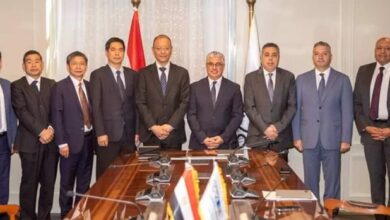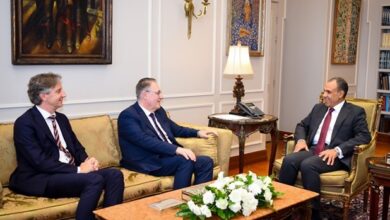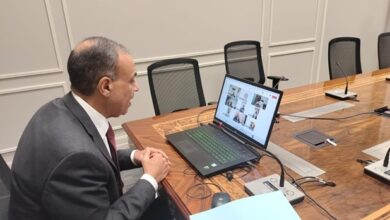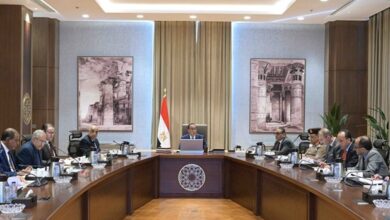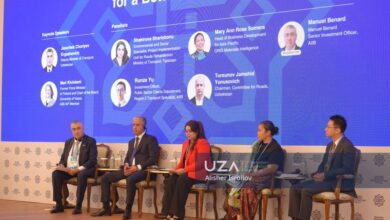Presidential decree approving agreements on financing 1st line of electric high-speed rail
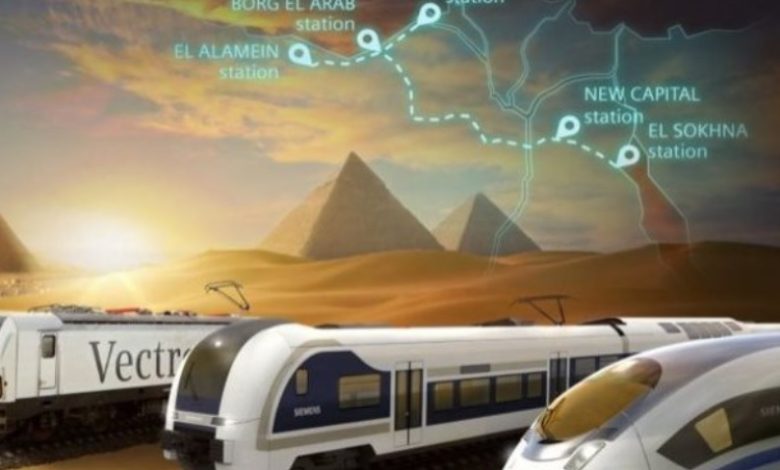
President Abdel Fattah El Sisi issued decree no 145 of 2023 approving the agreements to finance the first line of the Electric High-Speed Rail (HSR) between (Ain Sokhna- Alexandria-Alamein-Matrouh).
The 22-station line will serve “as a new Suez Canal, as it will link the city of Ain Sokhna on the Red Sea and the cities of Alexandria, Alamein and Matrouh on the Mediterranean with a total length of 660 kilometres,” the statement quoted Transport Minister Kamel El-Wazir as saying.
El-Wazir made the remarks during an inspection tour of the project, which includes the construction of sidewalks and railway bridges at the Ain Sokhna station, according to the statement.
El-Wazir also inspected the work progress at the New Administrative Capital (NAC) station, which will serve as an interchange station with the electric light rail transit (LRT), another ongoing eco-friendly transport project.
The station, described by El-Wazir as one of the largest in the Middle East, includes parking lots and commercial areas.
It is considered a central station for various means of transportation heading to the Administrative Capital and mainly serves the New Capital and its Sports City, as well as all new cities in eastern Cairo, the minister said.
The tour also included inspecting the work at the Mohamed Naguib station, another station of the first line that serves the areas of Katameya, New Cairo and the new urban areas located south of Ain Sokhna Road, according to the statement.
The minister said the first 40 kilometres of the first line – which is located within the range of the NAC station – will be handed to Germany’s Siemens in October to start the execution of railway systems and electrical and pneumatic feeding networks, as well as the signal, communication and control systems.
In May, Egypt signed a contract with German heavyweight Siemens to build around 2,000 kilometres of high-speed rail in the country, with a total cost estimated at EGP 360 ($23 billion).
In August, the Ministry of Transport – represented by the National Authority for Tunnels (NAT) – signed a preliminary agreement with a consortium of German railway company Deutsche Bahn (DB) and the Egyptian private-sector company El-Sewedi Electric on the management and operation of the new network.
The rail lines will connect 60 cities nationwide via trains that can operate at up to 230 km/hour.
The network, which will be accessible by around 90 percent of Egyptians, will include three lines and provide about 500 million journeys annually.
The second line will stretch 1,100 kilometres, linking Cairo in the north with Aswan’s Abu Simbel in the south. The third line will connect Luxor in Upper Egypt with Hurghada city on the Red Sea.
The project cost will start being paid for six years after the beginning of construction work over a period of 14 years.
The project will be the sixth largest of its kind in the world, according to the German train manufacturer.
The eco-friendly project is part of the country’s effort to go green in order to tackle the impact of climate change.
SIS


